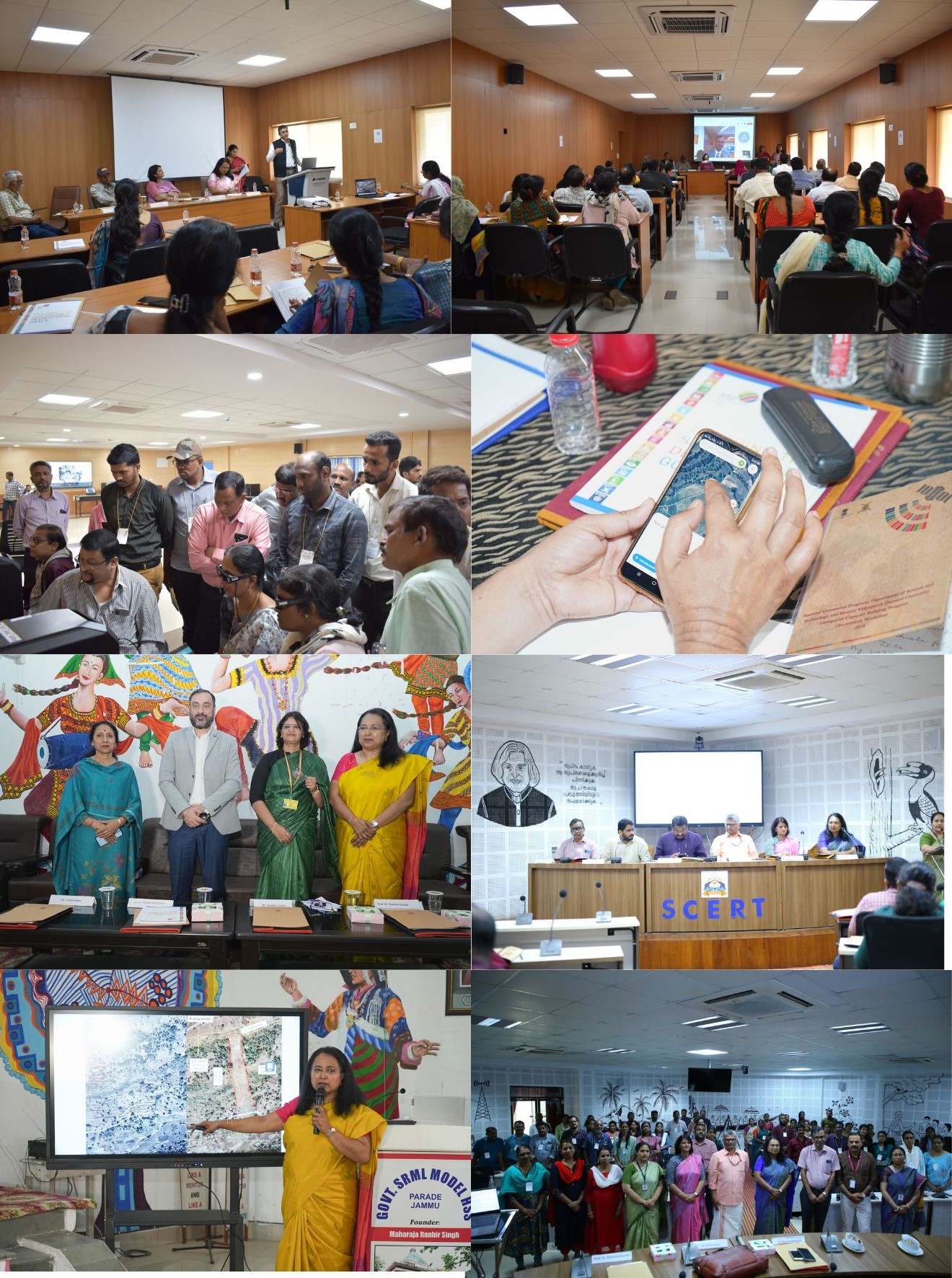27-Mar-2024
Empowering Educators: Leveraging Geospatial Technologies for Localizing Sustainable Development Goals
The National Geospatial Policy 2022 in India has set a visionary course, explicitly emphasizing "catching them young" to nurture spatial thinking among the country's populace. In resonance with this imperative, Bharati Vidyapeeth Deemed University, Institute of Environment Education and Research (BVIEER), Pune, as the Nodal Agency for DST’s Geospatial Capacity Building Program, has proudly pioneered the nation's inaugural series of workshops dedicated to promoting geospatial science and technology among educators and administrators jointly with the Department of Science and Technology, Government of India (DST) and the State Council for Education, Research and Training(SCERTs). Kick starting the first with SCERT Telangana and the National Institute for Geoinformatics Science and Technology, Survey of India Hyderabad, (NIGST) on December 20, 2023 graced by @Shri Sunil Kumar Addl Secretary, DST-GOI and Pankaj Mishra, Deputy Surveyor General, Survey of India followed by a workshop in Jammu on 27 March 2024 with the Directorate of Education, Jammu graced by Prof. Dr. Parikshit Singh Manas, Chairman Jammu and Kashmir Board of School Education, a third with SCERT Kerala on 5 April 2024 graced by Dr. A Nizamuddin IAS, Director Kerala State Remote Sensing and Environment Centre, Shri A Shanavas, director of General Education, Kerala, and Dr. Jayaprakash, Director SCERT Kerala and an upcoming one with SCERT Haryana on 23 April 2024, these workshops focus on the crucial facet of orienting educators to the art and science of spatial thinking. These workshops are a transformative initiative, strategically designed to equip teachers with a profound understanding of spatial thinking concepts and practical tools, thereby fostering an enriched learning environment. Given the government's emphasis on integrating spatial thinking into the educational framework, these groundbreaking workshops promise to significantly contribute to the holistic development of our students. The content focuses on cultivating an understanding of localizing SDGs, utilizing simple open-source geospatial tools to foster spatial thinking, and devising action-based projects for implementation at the school level. With subsequent workshops being planned across different states, these groundbreaking efforts align seamlessly with educational reforms, promising holistic student development. We are extremely happy to contribute to a more geospatial literate society!
